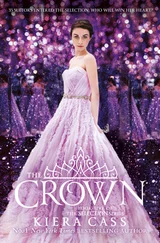Thomas Cook - The Crime of Julian Wells
Здесь есть возможность читать онлайн «Thomas Cook - The Crime of Julian Wells» весь текст электронной книги совершенно бесплатно (целиком полную версию без сокращений). В некоторых случаях можно слушать аудио, скачать через торрент в формате fb2 и присутствует краткое содержание. Год выпуска: 2012, ISBN: 2012, Издательство: Grove Press, Жанр: Криминальный детектив, на английском языке. Описание произведения, (предисловие) а так же отзывы посетителей доступны на портале библиотеки ЛибКат.
- Название:The Crime of Julian Wells
- Автор:
- Издательство:Grove Press
- Жанр:
- Год:2012
- ISBN:9780802194589
- Рейтинг книги:5 / 5. Голосов: 1
-
Избранное:Добавить в избранное
- Отзывы:
-
Ваша оценка:
- 100
- 1
- 2
- 3
- 4
- 5
The Crime of Julian Wells: краткое содержание, описание и аннотация
Предлагаем к чтению аннотацию, описание, краткое содержание или предисловие (зависит от того, что написал сам автор книги «The Crime of Julian Wells»). Если вы не нашли необходимую информацию о книге — напишите в комментариях, мы постараемся отыскать её.
The Crime of Julian Wells — читать онлайн бесплатно полную книгу (весь текст) целиком
Ниже представлен текст книги, разбитый по страницам. Система сохранения места последней прочитанной страницы, позволяет с удобством читать онлайн бесплатно книгу «The Crime of Julian Wells», без необходимости каждый раз заново искать на чём Вы остановились. Поставьте закладку, и сможете в любой момент перейти на страницу, на которой закончили чтение.
Интервал:
Закладка:
Even for Julian, this struck me as an infinitely sad pronouncement, and to avoid its sting I rushed ahead.
“Did you help him find out what happened to Marisol?” I asked.
“No,” Soborov said, “but I think perhaps El Arabe did, because Julian must have discovered something very bad. I believe this because he suddenly change. He has been a good-looking young man; then overnight he is old and looks like one who has, as we say, crossed the Styx. He still has this look when I see him last.” His gaze darkened. “A very bad man, El Arabe. Very bad. He feels no guilt, this man. Even after the junta fall, he offers no apology for his little schools. To this day, he is sometimes on television in Argentina, regretting nothing, saying that he enjoyed every minute of it.”
“Did he go to prison?” Loretta asked.
“For few years,” Soborov said. “Then he is released and after that he is home to his village near Iguazu.”
I recalled the town Julian had circled on the map he was looking at on the day he died. “Clara Vista?”
Soborov nodded. “He lives there still, makes interviews, laughs in the faces of those who still seek the disappeared.”
He let this settle in. Then, as if trying to lighten the atmosphere, he smiled quite brightly and said, “By the way, did Julian ever finish the book on Chikatilo?”
“Yes,” I answered. “It’ll be published next year. He called it The Commissar , and it’s the most thorough account of Andrei Chikatilo yet written.”
“Good,” Soborov said. “He was a hard worker, Julian. This much can be said of him, and it is not a small thing. I would like to receive a copy of this book when it is published.”
“I’ll make sure you do,” I promised him.
Soborov smiled. “So, have I said to you what you wished to know about Julian?”
“Not really,” Loretta answered bluntly.
Soborov was clearly surprised by this answer.
“Irene said that when Julian came to see her a few years ago, he already knew what happened to Marisol,” Loretta added. “You’re saying that it was this El Arabe who told him?”
Soborov nodded. “Who else could? He was Julian’s last contact in Argentina.”
“When Julian came here, did you talk about Argentina?” Loretta asked.
“Yes,” Soborov said. “We talked of the dogs, and of that girl, the one who disappeared. He said that he found her.”
“Found her?” I asked. “He found Marisol?”
“Yes,” Soborov answered. “It was the Arab who led him to her, but he did not tell me how.”
“Did Julian say anything about who Marisol was or might have been?” Loretta asked.
Soborov looked puzzled. “Might have been?”
“A Montonero, for example.”
Soborov shook his head.
“What did he say about her?” Loretta asked.
Soborov considered his answer for a moment, then said, “He said only that a trick is played upon her.”
“What kind of trick?” I asked.
Soborov took a surprisingly casual sip from his glass. “He was always speaking in. . what is the word when it is about a little thing, but it is really about big things. . what is the word for speaking in this way?”
“Metaphorically?” I asked.
“That is it, yes,” Soborov said. “Not really about one thing, about many things.” Now he shrugged. “So when I ask him what is this trick, he does not answer me directly. It is something he cannot speak about, he tell me.” He put down his glass. “So all I know is that he has a name for this trick.” His smile bore the weight of the dark view of things he seemed to have glimpsed in Julian’s eyes at that long-ago moment. “It is called ‘the Saturn Turn.’”
Part VI
25
“The Saturn Turn,” Loretta repeated quietly.
We were seated in a small park near our hotel. It was late in the afternoon and there were few people around. Children were in school and workers were at their jobs. A few older people walked about, along with an occasional mother pushing a stroller. Overall, the scene was quite peaceful, and this allowed my mind to roam rather freely until, for some reason, I hit upon Aeschylus, of all people. It was not a line from any of his plays that came to me, however, but the fact that he had written his own obituary and how odd that obituary was. In it, Aeschylus mentioned nothing of his fame, nothing of his plays, nothing even of his life, except that as a young man he had fought at Marathon. That, it seemed, was the thing of which he was most proud, the one thing about himself that he wanted remembered.
Julian, of course, had left no obituary, much less an explanation of why he had chosen to take his own life. Stranger still, while Aeschylus had proudly noted his fighting at Marathon, Julian had chosen to destroy the last words he’d ever written, as if dreading their meaning.
When she spoke, it was clear that Loretta’s mind was tending in a completely different direction.
“I was just remembering something Julian once said,” she told me. “He had just gotten back from Swaziland, where he’d gone to write an article. We were looking through the photographs he’d taken there. People in terrible conditions, all of them man-made. He looked up from one particularly grim picture and he said, ‘It all comes down to people in the end, Loretta. All the global policies and grand schemes. They all come down to what we do to people, whether we help or harm them.’”
On that thought, I was with Julian again, sitting in Grosvenor Park, peering up at the great eagle that was mounted at the top of the American embassy. He was staring at that eagle when he spoke.
“Ambrose Bierce called diplomacy the art of manufacturing a plausible lie,” he said.
I laughed at this, but Julian didn’t. Instead, his gaze darkened and a shadow settled over him. “To play that trick really well, Philip,” he added, “is a master crime.”
I related this odd exchange to Loretta, who listened to it very carefully, as if combing each word for some telling detail.
“Maybe Julian learned that in Argentina,” I added.
Loretta nodded and touched my hand. “On to El Arabe,” she said.
For the next few days, we turned the small desk in my hotel room into a makeshift research center. Loretta’s Spanish was far better than mine, though neither of us was in any sense fluent. Still, by working together, and despite online translations that were often close to indecipherable themselves, we got the gist of the many articles we found on El Arabe.
Just as Soborov had told us, El Arabe was anything but shy when it came to publicity. He’d been sentenced to ten years for his escuelitas activities and had served seven before being released.
Upon release, he’d moved to the small town near the great falls at Iguazu, an area of Argentina where it is possible not only to see both Paraguay and Brazil but to easily slip across their borders. He had not been shy about stating the obvious:
I wanted to be close to the border in case the little men of Casa Rosada want to try me again on some trumped-up charge. I live here in peace. I do not hurt a cat. I sit on my little porch and I say to the world, “I take the dirty name you call me with pride, for I am El Arabe, and I regret nothing.”
As became clear from the many interviews that Hernando Vilario-which was El Arabe’s real name-had granted in the days following his release, he not only had no regrets, but he was actually proud of what he’d done.
You only have to look at Russia under the Reds to know what men like me saved Argentina from. The people of Argentina should put statues of us in the park, because we are the reason they do not live under the Red flag. Would they like it better under Castro? With the old cars and the falling-down capital and the eight-hour speeches in the hot Havana sun? They should thank men like me, the men who saved them from such a thing. Instead they put us in prison, and we are made to fall on our knees and deny the great thing we did. We stopped the Reds in their tracks, and for this all Argentina should be grateful to us.
Читать дальшеИнтервал:
Закладка:
Похожие книги на «The Crime of Julian Wells»
Представляем Вашему вниманию похожие книги на «The Crime of Julian Wells» списком для выбора. Мы отобрали схожую по названию и смыслу литературу в надежде предоставить читателям больше вариантов отыскать новые, интересные, ещё непрочитанные произведения.
Обсуждение, отзывы о книге «The Crime of Julian Wells» и просто собственные мнения читателей. Оставьте ваши комментарии, напишите, что Вы думаете о произведении, его смысле или главных героях. Укажите что конкретно понравилось, а что нет, и почему Вы так считаете.












